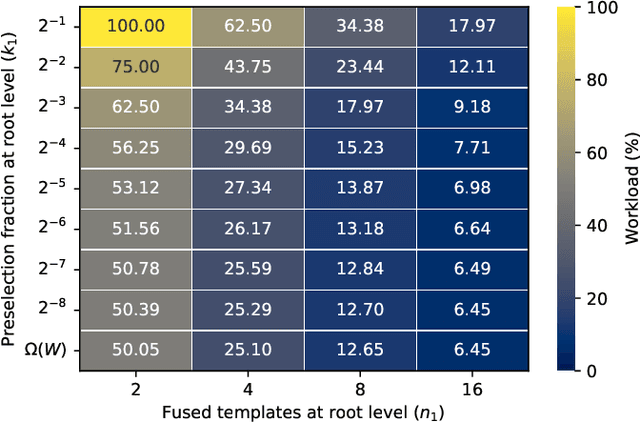Dailé Osorio-Roig
Benchmarking of Cancelable Biometrics for Deep Templates
Feb 26, 2023Abstract:In this paper, we benchmark several cancelable biometrics (CB) schemes on different biometric characteristics. We consider BioHashing, Multi-Layer Perceptron (MLP) Hashing, Bloom Filters, and two schemes based on Index-of-Maximum (IoM) Hashing (i.e., IoM-URP and IoM-GRP). In addition to the mentioned CB schemes, we introduce a CB scheme (as a baseline) based on user-specific random transformations followed by binarization. We evaluate the unlinkability, irreversibility, and recognition performance (which are the required criteria by the ISO/IEC 24745 standard) of these CB schemes on deep learning based templates extracted from different physiological and behavioral biometric characteristics including face, voice, finger vein, and iris. In addition, we provide an open-source implementation of all the experiments presented to facilitate the reproducibility of our results.
An Attack on Feature Level-based Facial Soft-biometric Privacy Enhancement
Nov 24, 2021



Abstract:In the recent past, different researchers have proposed novel privacy-enhancing face recognition systems designed to conceal soft-biometric information at feature level. These works have reported impressive results, but usually do not consider specific attacks in their analysis of privacy protection. In most cases, the privacy protection capabilities of these schemes are tested through simple machine learning-based classifiers and visualisations of dimensionality reduction tools. In this work, we introduce an attack on feature level-based facial soft-biometric privacy-enhancement techniques. The attack is based on two observations: (1) to achieve high recognition accuracy, certain similarities between facial representations have to be retained in their privacy-enhanced versions; (2) highly similar facial representations usually originate from face images with similar soft-biometric attributes. Based on these observations, the proposed attack compares a privacy-enhanced face representation against a set of privacy-enhanced face representations with known soft-biometric attributes. Subsequently, the best obtained similarity scores are analysed to infer the unknown soft-biometric attributes of the attacked privacy-enhanced face representation. That is, the attack only requires a relatively small database of arbitrary face images and the privacy-enhancing face recognition algorithm as a black-box. In the experiments, the attack is applied to two representative approaches which have previously been reported to reliably conceal the gender in privacy-enhanced face representations. It is shown that the presented attack is able to circumvent the privacy enhancement to a considerable degree and is able to correctly classify gender with an accuracy of up to approximately 90% for both of the analysed privacy-enhancing face recognition systems.
Feature Fusion Methods for Indexing and Retrieval of Biometric Data: Application to Face Recognition with Privacy Protection
Jul 27, 2021



Abstract:Computationally efficient, accurate, and privacy-preserving data storage and retrieval are among the key challenges faced by practical deployments of biometric identification systems worldwide. In this work, a method of protected indexing of biometric data is presented. By utilising feature-level fusion of intelligently paired templates, a multi-stage search structure is created. During retrieval, the list of potential candidate identities is successively pre-filtered, thereby reducing the number of template comparisons necessary for a biometric identification transaction. Protection of the biometric probe templates, as well as the stored reference templates and the created index is carried out using homomorphic encryption. The proposed method is extensively evaluated in closed-set and open-set identification scenarios on publicly available databases using two state-of-the-art open-source face recognition systems. With respect to a typical baseline algorithm utilising an exhaustive search-based retrieval algorithm, the proposed method enables a reduction of the computational workload associated with a biometric identification transaction by 90%, while simultaneously suffering no degradation of the biometric performance. Furthermore, by facilitating a seamless integration of template protection with open-source homomorphic encryption libraries, the proposed method guarantees unlinkability, irreversibility, and renewability of the protected biometric data.
 Add to Chrome
Add to Chrome Add to Firefox
Add to Firefox Add to Edge
Add to Edge